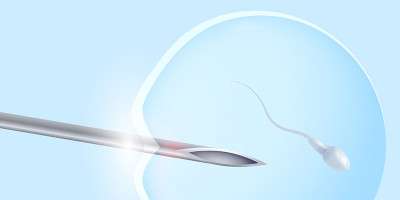IVF treatment can be the beginning of a journey full of hope for couples who want to have a child. However, this process also raises many questions. During the IVF process, couples may have many question marks in their minds: Which steps should we follow? How much does the treatment cost? What is the chance of success? How long will this treatment last? Answers to all these questions enable couples to enter the IVF treatment process in a more prepared and conscious manner. IVF treatment gives the chance to turn the dream of having a child into reality with the technological and scientific opportunities offered by modern medicine. In this article, I will clarify some frequently wondered questions about the IVF treatment process.

In vitro fertilisation
How many times can IVF be tried?
When starting IVF treatment, the health status of the expectant mother should be evaluated and then IVF treatment should be started. If pregnancy does not occur after the first IVF trial, the decision for the second IVF trial is made according to the health status of the patient. There is usually no specific ‘maximum number of attempts’ in IVF treatment. However, the chance of success is highest in the first 3 IVF attempts. Although the chance of success decreases in subsequent attempts, there is still a chance and this chance is different for each couple. Treatment should be planned individually.
Couples who plan to conceive naturally do not experience demoralisation if they fail at the end of the first month and continue trying in the second month. In the IVF treatment process, it should be considered in the same way; if the first attempt fails, the second treatment should be continued without getting upset and demoralised. Of course, the IVF treatment process can be psychologically and financially challenging. However, making an effort with hope and trying patiently on the road to happiness is an important step towards success in IVF treatment.
The most important factors affecting the success of the treatment are the age of the woman and the number of eggs collected. In women over 35 years of age, fertility starts to decrease gradually. How long you should try IVF treatment may vary depending on your age. The earlier in vitro fertilisation is performed, the greater the success of IVF.
The IVF process in Istanbul is a situation where couples are expected to be psychologically and emotionally negatively affected. For this reason, it is important that all couples receiving IVF treatment actually receive psychological support. While some couples patiently continue their IVF trials; some do not prefer to continue their treatment because they are affected psychologically and of course financially. In this process, we are always ready to be with you with our experienced and understanding team.
How Many Days Does IVF Treatment Take?
The treatment stages are different in fresh embryo transfer and frozen embryo transfer and accordingly, the duration of IVF treatment is different. In patients with fresh transfer, the IVF treatment period lasts 15-18 days in total. Egg growth and development process takes an average of 8-10 days. Then, egg hatching injection is performed and the eggs are collected 34-36 hours later under light anaesthesia. After egg collection, embryo transfer is performed on the 3rd or 5th day. Our preference is to transfer embryos that reach day 5.
The frozen embryo transfer process starts with the egg growth and development phase and usually takes 15-18 days. During this process, the eggs are collected and fertilised with sperm and the embryos can be frozen on day 3 or day 5. The preference is usually to freeze embryos kept until day 5, as this increases the chances of IVF success.
In the month in which the transfer of the frozen embryos is planned, the expectant mother starts estrogen therapy on the 2nd or 3rd day of menstruation. Estrogen treatment helps to thicken the lining of the uterus. On about the 12th day, the thickness of the uterine lining is checked by ultrasound. When a thickness of at least 7 mm is reached, progesterone treatment is started. The progesterone treatment helps to prepare the lining of the uterus for the embryo to attach. The embryo transfer takes place approximately 6 days later. This process involves thawing, preparing and transferring the frozen embryos into the uterus.
How Many Days Does IVF Treatment Abroad Take?
IVF treatment in Turkey usually takes 16-21 days. This period may vary depending on the patient's health condition, medical history and treatment plan. The treatment process usually includes treatment phases separated by several days or weeks. IVF can be either frozen transfer or fresh transfer.
For patients from abroad, IVF treatment in Turkey and IVF treatment abroad are similar. However, since the duration of their stay in Turkey is limited, we recommend that patients from abroad visit a gynaecologist to have some examinations done in their country to determine whether there is a gynaecological problem.
We make a preliminary online interview with couples abroad who have infertility complaints. In this interview, we examine many issues such as the general health status of the expectant mother, age, medical history, weight and the health status of her partner. Then we recommend some tests to be performed. These tests may vary according to the patient;
- Blood tests; TSH, free T4, free T3, AMH, Prolactin, AST, ALT, BUN, Creatinine, Fasting glucose, HBsAg, AntiHIV, AntiHCV.
- Hysterosalpingography (HSG); medicated uterine film
- Cervical smear test from the expectant mother
- Gynaecological examination and transvaginal pelvic ultrasound
- Spermiogram (sperm analysis test) and HBsAg, AntiHIV, AntiHCV tests in the blood.
After the preliminary interview, we evaluate the test results and create a treatment plan with the couple. We invite the couple to our clinic on the first day of menstruation. On the 1st day of menstruation, we meet the couple and take the necessary tests for the IVF procedure. On the 2nd day of menstruation, we perform ultrasound and gynaecological examination and determine the treatment protocol. We start IVF injection and pill treatments according to the treatment protocol. Egg growth period takes 8-12 days on average. Then we administer the hatching injection and 2 days later we collect the eggs under light anaesthesia.
For patients who are scheduled for fresh embryo transfer, the transfer is performed 3-6 days after the egg collection. So, IVF patients in Turkey who are scheduled for fresh embryo transfer should stay for 17-23 days on average.
Patients who are scheduled for frozen embryo transfer can return to their country 1-2 days after egg retrieval. We give them the medicines to be used in embryo transfer and send them off to their countries and recommend them to come back to Turkey for embryo transfer after 1-2 months at the earliest. We start embryo transfer on the 2nd day of menstruation. If there is no cyst in the ultrasound to be performed by the gynaecologist in their country or if the estradiol and progesterone values are within the range we want, we ask them to start the medication and we recommend them to come to Turkey on the average 17th day of the treatment. We do the embryo transfer on the 18th day and send them to their country 2 days later. This period may vary for 4-5 days.
Can Everybody Have IVF?
Not everyone may be suitable for IVF treatment. IVF treatment is determined when people who cannot have children naturally apply to a specialist and after the necessary examinations, the doctor decides whether they are suitable for IVF treatment. IVF treatment is recommended by gynaecologists for suitable candidates and is personalised according to the couples' health history and medical conditions. We also apply personalised treatment in our clinic.

Can Everybody Have In Vitro Fertilisation
At How Many Trials Does IVF Work?
One of the most frequently asked questions by couples who start IVF treatment is what the success rate is in the first attempt and how many times it can be tried.
The success of the first attempt depends on many variables. However, studies for young couples generally show that the success rate is between 60 and 70 per cent. If the first attempt is unsuccessful, the answer to the success rate of subsequent attempts is essentially the same. The success rate does not decrease as the number of attempts increases, such as the second IVF attempt, the third IVF attempt or more IVF attempts.
There is no upper limit for IVF attempts. However, the age of the woman is an important factor. Especially after the age of 45, it may not be advisable to continue treatment because of the increased risk of pregnancy complications and trials may be terminated.
In conclusion, there is no limit to the number of attempts in IVF treatment. Each couple's situation is different and the treatment process should be determined according to individual needs.
Which treatments can be applied before IVF treatment?
When infertility is diagnosed, various treatments can be applied depending on the condition of the couples and the cause of infertility. Let's talk about the treatments we can recommend before IVF treatment.
Egg Development Drugs: Hormonal drugs can be used to stimulate ovulation in women with ovulation problems.
Vaccination (Insemination): In mild problems in the reproductive systems of men or women, sperm can be transferred to the woman's uterus naturally to increase the chance of sperm meeting the egg.
Egg Freezing or Sperm Freezing: It is applied to freeze eggs or sperm and store them for later use.
Surgical Interventions: Surgical operations can be performed to correct structural problems in the uterus, tubes or male reproductive organs.
Which treatment will be applied depends on the cause of infertility, age, medical history and personal preferences of the couple. Infertility treatment should be assessed and guided by a reproductive specialist or gynaecologist.
Which Tests Does an IVF Specialist Order?
One of the most important steps in achieving successful results in IVF treatments is to make the correct diagnosis and determine the obstacles to pregnancy. For this purpose, we request some tests from our couples.
What are the tests requested from the woman before IVF?
Before starting IVF treatment, a gynaecological examination should be performed on the woman.
Hormonal Tests: Blood tests are required to measure hormone levels such as estrogen, progesterone, FSH (Follicle Stimulating Hormone), LH (Luteinising Hormone), TSH (Thyroid Stimulating Hormone), AMH (Anti-Müllerian Hormone).
Sperm Analysis (Spermiogram): It is a test to evaluate the quality, sperm count, motility and shape of the man's sperm.
Ultrasonography: It is used to examine the structures of the woman's reproductive organs (uterus, ovaries, tubes) and the ovulation process.
Ovarian Reserve Tests: Tests such as AMH, FSH and transvaginal ultrasound can be used to determine the woman's ovarian reserve (number and quality of eggs).
Permeability Tests of the Tubes: These are tests performed to check whether the tubes are open by methods such as HSG (Hysterosalpingography) or laparoscopy.
Genetic Tests: Genetic tests may be recommended, especially in couples at risk of recurrent miscarriages or genetic diseases.
Endometrial Biopsy: It is performed in special cases.
Hysterosonography: It is the monitoring of intrauterine tissues using saline. It is recommended to investigate the presence of endometrial polyps, fibroids and adhesions.
Laparoscopy or Hysteroscopy: It can be performed for diagnostic and therapeutic purposes.
These tests help to determine the cause of infertility of the couple and to create a suitable plan for IVF treatment. However, which tests will be performed may vary depending on the specific situation of the couple and is determined by the IVF specialist.
What Tests Are Required from Men Before IVF Treatment?
Before starting IVF treatment, men are asked to undergo a urological examination and certain tests.
Sperm Analysis (Spermiogram): This is the primary test for evaluating sperm characteristics such as count, motility, and morphology. It provides essential information about the man’s reproductive health.
Hormonal Tests: In some cases, blood tests may be required to determine hormone levels. These tests are particularly important if there are hormone imbalances or issues in hormone production.
Genetic Tests: In certain situations, it may be necessary to examine the man’s genetic makeup (chromosome analysis). This is especially relevant if there are genetic risk factors within the couple, if there is no sperm present in the semen, if there are severely abnormal sperm parameters, if the partner has experienced recurrent pregnancy losses, or if there is a history of genetic disorders.
Doppler Ultrasound: Recommended in cases of varicocele.
Sperm DNA Fragmentation Test
These tests provide insight into the man’s reproductive health and potential issues, aiding in the planning of an appropriate treatment strategy.
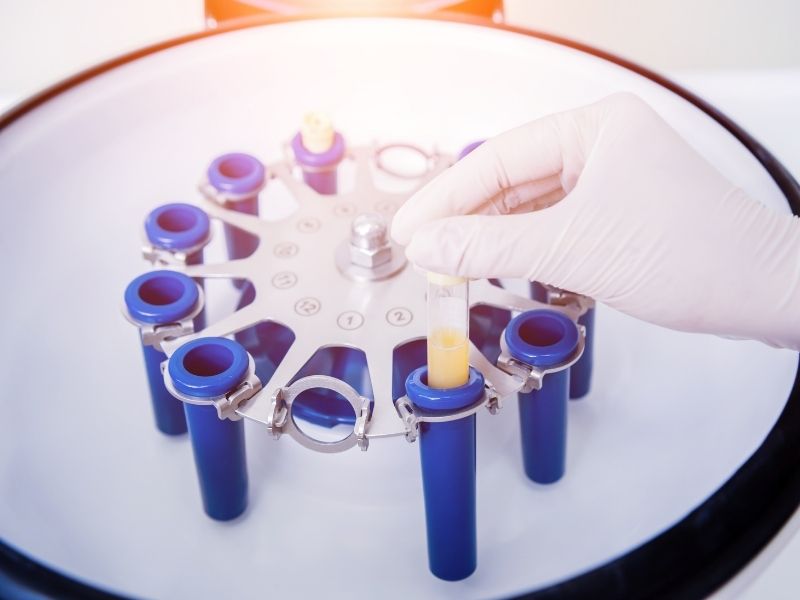
Tests Required from Men Before IVF Treatment
Is There an Age Limit for Men in IVF Treatment?
In IVF treatment, the age limit is generally more defined for women, as their fertility capacity decreases with age, lowering their chances of conception. However, there is no strict age limit for men.
Although sperm production in men may decline with age, this decrease is usually not as pronounced as it is in women. Sperm quality and motility may reduce, and DNA damage may increase with age, but there is no upper age limit for men in IVF treatment. That said, as a man’s overall health and sperm quality can impact treatment success, it is essential for older men considering treatment to factor in age-related health issues and any potential decline in sperm quality.
How Many Days of Hospitalization Are Required in IVF Treatment?
Hospitalization is not required after egg retrieval in IVF treatment. After the egg retrieval, the mother-to-be is rested for an hour, monitored for any bleeding, and provided with a meal before being discharged. The egg retrieval procedure lasts about 20 minutes and is performed on an outpatient basis, meaning hospitalization is unnecessary. Because the procedure is done under light anesthesia, the mother-to-be awakens quickly and recovers promptly.
Anesthesia is not needed for embryo transfer (except in special cases), as it is a painless procedure. Following the embryo transfer, the mother-to-be rests for an hour and can then go home. In cases where anesthesia is used for embryo transfer due to specific circumstances, hospital stay is still not required. Patients are discharged after a one-hour rest following the procedure.
Can Infertility Be Detected by Ultrasound?
Infertility often results from a combination of factors affecting the couple’s reproductive ability, including hormonal imbalances, structural or functional disorders of the reproductive organs, issues with sperm or egg quality, and tube blockages. Ultrasound can help evaluate some of these factors. For instance, it allows visualization of the ovaries and uterus, which aids in identifying issues like polycystic ovary syndrome (PCOS) or structural abnormalities such as fibroids within the uterus. However, infertility diagnosis typically requires a series of tests and assessments beyond this imaging technique. Comprehensive infertility diagnosis involves hormone tests, sperm analysis, and tests assessing the patency of the fallopian tubes, among others. Therefore, ultrasound is a tool for diagnosing specific conditions related to infertility but is not sufficient on its own for a full infertility diagnosis.
Is There an Infertility Test?
Yes, there are various tests available for infertility. These tests are used to evaluate couples’ reproductive abilities and identify underlying causes. Some commonly used infertility tests include:
- Sperm Analysis: Conducted to assess factors in men such as sperm count, motility, and morphology.
- Hormone Tests: Used to measure hormone levels in both men and women. These tests help identify ovulation disorders or hormonal imbalances.
- Ovulation Tests: Used to determine the ovulation cycle in women. These tests include basal body temperature monitoring, blood progesterone measurements, and the use of ovulation predictor kits.
- Hysterosalpingography (HSG): This test evaluates the condition of the uterus and fallopian tubes and can detect tube blockages or structural abnormalities in the uterus.
- Laparoscopy or Hysteroscopy: These surgical procedures allow direct observation of reproductive organs like the uterus, ovaries, and fallopian tubes and can also be used to assess conditions like endometriosis.
Which tests to apply is determined based on the couple’s medical history, symptoms, and the doctor’s assessment. Couples concerned about infertility should consult a reproductive health specialist.
Is IVF Treatment the Same for Everyone?
IVF treatment must be tailored to each individual. The treatment plan is customized according to each couple’s specific needs and circumstances, depending on factors like the cause of infertility, age, medical history, and other relevant considerations.
For example, if the cause of infertility stems from a male factor, the treatment plan might focus on enhancing sperm quality or involve surgical procedures for sperm retrieval. For couples dealing with female-factor infertility, medications to boost ovarian reserve or improve the ovulation process may be used.
Each couple’s treatment plan should be unique, and multiple IVF attempts may sometimes be necessary. Throughout the process, doctors should provide couples with the most suitable treatment options, shaping the approach based on their needs and goals. Our clinic also takes care to offer individualized IVF treatment plans to each patient and couple.
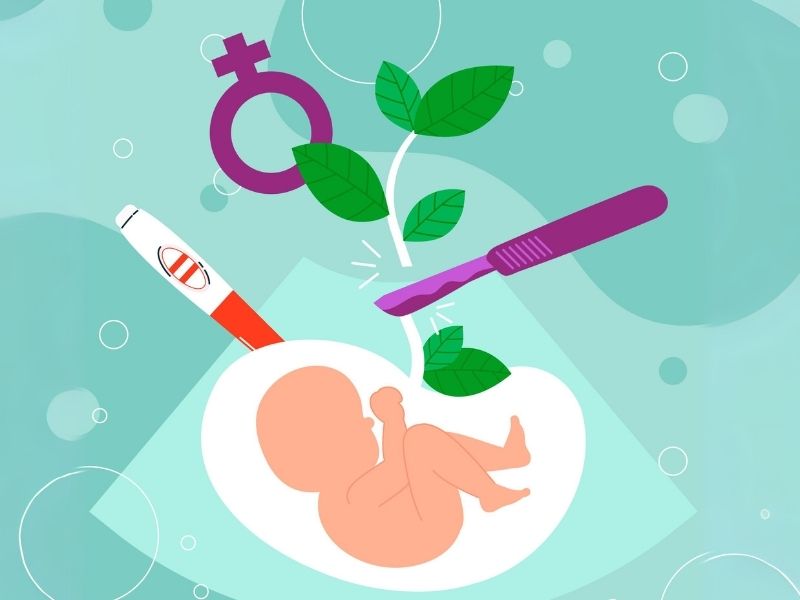
Differences Between IVF Pregnancy and Natural Pregnancy
Are There Any Differences Between an IVF Pregnancy and a Natural Pregnancy?
There are a few distinctions between pregnancies achieved through IVF (in vitro fertilization) and those conceived naturally:
- Formation Process and Treatment: In IVF treatment, male and female reproductive cells are combined in a laboratory setting, resulting in fertilized eggs that develop into embryos. These embryos are then placed in the mother’s uterus. In natural conception, the fertilized egg implants in the woman’s uterus on its own. IVF treatment is intended for couples who cannot achieve pregnancy naturally.
- Control Factors: IVF allows greater control over factors such as the number of embryos, embryo quality, and timing of transfer, whereas in natural pregnancies, these factors are subject to natural processes.
- IVF and Miscarriage Risk: Is the risk of miscarriage higher with IVF? Some studies have indicated a slightly increased risk. However, this is generally attributed to the underlying causes of infertility.
- Success Rates and Reasons: Success rates in IVF vary depending on factors such as the couple’s age, health status, and response to treatment, while natural conception can be influenced by genetic factors. IVF is often preferred in cases of infertility caused by issues such as tubal damage or blockage, low sperm quality, or quantity.
- Risks: Both pregnancy types share certain risks, though the medications and procedures used in IVF can introduce additional risks. For example, the risk of multiple pregnancies is higher in IVF than in natural conception.
- Hospitalization and Work Disruption: IVF treatment typically does not require the woman to be hospitalized. The process does not generally disrupt the woman’s daily life or work significantly.
- Cost: IVF is generally more costly than natural conception and can pose a financial burden for couples.
In conclusion, IVF pregnancies differ from natural pregnancies in terms of treatment process, controllability, success rates and reasons, hospitalization, and work impact. However, once pregnancy is achieved, the course of the pregnancy and birth process remain the same.
Are There Health Concerns for Babies Born Through IVF?
In recent decades, the use of assisted reproductive technologies like IVF has grown significantly worldwide, bringing hope to many couples seeking to have children. However, these technologies do come with certain risks, especially for mothers expecting multiple babies.
Additionally, it’s known that mothers who have conceived a single baby through IVF or ovulation induction may face higher risks than those who conceive naturally. However, it remains unclear how much of these risks stem from the primary causes of infertility. Therefore, before beginning these treatments, doctors should assess the patient’s health and openly discuss any associated risks.
Any existing health issues or genetic conditions in the mother or father should also be addressed. If there is a genetic disease risk in either parent, appropriate genetic counseling should be provided.
For mothers expecting three or more babies, the option to reduce the number of embryos may be discussed.
Finally, for mothers carrying multiple pregnancies, receiving specialized obstetric care is important. Choosing a physician experienced in managing high-risk pregnancies can be essential to monitoring and managing associated risks and outcomes.
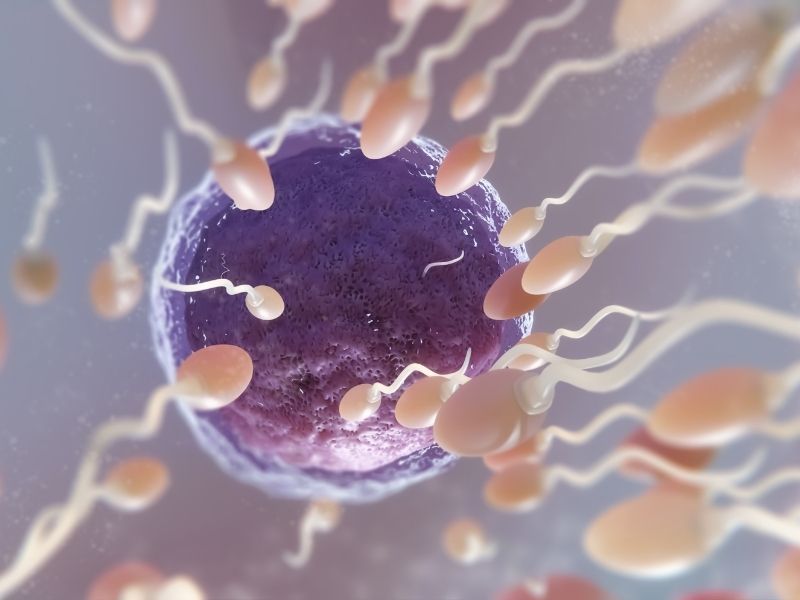
Number of Transferred Embryos
Does the Number of Transferred Embryos Affect the Likelihood of Pregnancy?
Yes, the number of embryos transferred can impact the likelihood of pregnancy. Generally, transferring more than one embryo may increase the chances of pregnancy compared to a single embryo transfer. For instance, the success rate for a single embryo transfer averages around 30%, while transferring two embryos raises it to about 45%, although these rates vary depending on the couple. Transferring multiple embryos also increases the risk of twin, triplet, or quadruplet pregnancies, which can elevate health risks for both the mother and the babies.
Many fertility specialists recommend a single embryo transfer, especially for young and healthy couples, to increase the likelihood of a single pregnancy and reduce the risk of multiples. In Turkey, per the Ministry of Health guidelines, women over 35 years old with two failed IVF attempts are permitted to transfer two embryos. In other cases, only single embryo transfer is allowed.
It’s essential to remember that each case is unique, and the optimal approach to embryo transfer depends on the couple’s situation. The treatment plan and number of embryos transferred are determined based on factors such as the couple’s medical history, age, and health status. Therefore, it is best to consult an IVF specialist for guidance on this matter.
When Can Sexual Intercourse Resume After Embryo Transfer?
The timing of resuming sexual activity during the IVF process varies based on the treatment plan and the doctor’s recommendations. Generally, due to the risk of pain and bleeding, intercourse is not advised after egg retrieval. Following embryo transfer, abstaining from sexual activity for a time is recommended to create an optimal environment for embryo implantation. However, as each couple’s situation is different, it’s essential to follow the doctor’s instructions. Doctors usually provide a specific timeframe for resuming sexual activity after the embryo transfer, which may vary for each couple.
Do Fibroids and Blocked Fallopian Tubes Affect Pregnancy?
Yes, if fibroids press on or are located within the endometrium (uterine lining), they can prevent pregnancy. If the fallopian tubes are blocked, conception cannot occur naturally.
Does Every Egg Fertilize?
Not every egg can be fertilized. Only mature and structurally normal eggs are capable of fertilization.
Is Ectopic Pregnancy Possible in IVF Treatment?
The risk of ectopic pregnancy in IVF treatments is low (1-3%).
Can Gender Be Selected in IVF Treatment?
Gender selection during IVF may be possible in certain cases, although it is typically subject to strict conditions and legal regulations. Some situations where gender selection might be permitted include:
- Genetic Disorder Carriers: If the parents carry an inherited genetic disorder that tends to affect a particular gender, the procedure known as preimplantation genetic testing (PGT) can determine the embryos’ gender. This can allow for selecting healthy embryos of the desired gender.
- Gender-Specific Genetic Disorders: Some genetic disorders are more common in a specific gender. In these cases, choosing the gender of the embryo can minimize the risk of the disease by selecting a healthy gender.
However, gender selection in IVF is often subject to legal restrictions and is only allowed for medical reasons in many countries. Ethical and cultural factors are also at play, and some countries prohibit gender selection in IVF altogether.
It’s essential for couples interested in gender selection to consult the experts at the clinic where they will receive treatment. Specialists can provide information about available options and relevant legal regulations.
Is IVF Available at Public Hospitals?
Yes, IVF is available at some public and university hospitals in major cities.
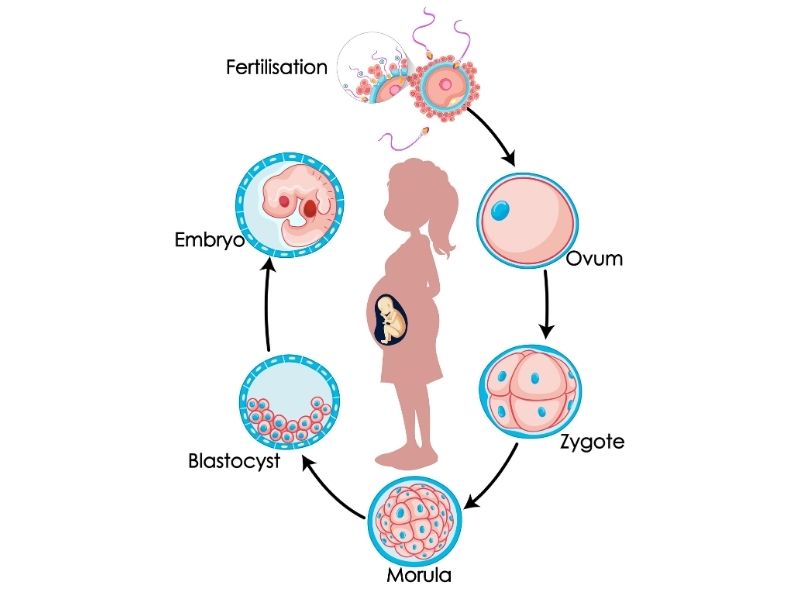
Pregnancy Monitoring After IVF Treatment
How is Pregnancy Monitored After IVF Treatment?
Pregnancy monitoring after IVF treatment is generally not much different from regular pregnancy monitoring. First, around 12–14 days after the embryo transfer, a blood test is conducted to confirm pregnancy. This test measures beta-hCG levels to verify the presence of pregnancy.
Once pregnancy is confirmed, the process continues similarly to a standard pregnancy follow-up. Routine prenatal check-ups, ultrasound scans, blood tests, and other necessary medical assessments are conducted. Your doctor will plan these check-ups regularly to monitor the pregnancy's normal progression and to track the health of both the developing baby and the mother.
While pregnancies achieved through IVF may require additional monitoring and attention, this depends on the patient’s specific needs and the course of the pregnancy. Generally, however, pregnancy monitoring after IVF follows the same principles as normal pregnancies, focusing on the health of both mother and baby.
Is There a Risk of Mixing Sperm and Eggs with Others’ in the Laboratory?
In the laboratory setting, it is impossible for sperm and eggs to be mixed with those of other individuals because strict safety measures are in place at our contracted laboratories. Patient safety in the lab is given the highest priority.
At every stage of the treatment process, the identity of the patient and their partner is verified. This identity verification is repeated before each procedure, including on the day of egg retrieval and microinjection. All information related to the patient's treatment is reviewed carefully, and appropriate protocols are followed. This ensures that any mix-up or error is impossible.
Should Embryos Be Transferred on the 5th Day After Egg Retrieval?
The day of embryo transfer depends on the couple’s specific situation and the condition of the embryos. For blastocyst transfer (5-day embryo transfer), certain conditions must be met; otherwise, a transfer may be performed on day 3 or day 2. In every case, specialists carefully determine the optimal day for transfer, evaluating the couple’s circumstances to ensure the highest chance of success.






